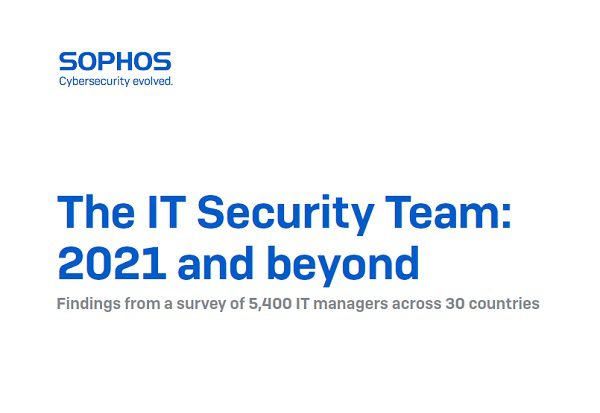IT teams have been at the forefront of pandemic response in almost every organization. IT has played a direct and critical role in enabling organizations to continue working despite the restrictions and limitations necessitated by COVID-19. It is thanks in large part to committed and passionate IT teams around the globe that so many organizations have been able to remain operational during the pandemic. They helped education establishments deliver learning online, enabled retailers to switch to online trading, and ensured public bodies could continue to provide essential services, just to name just a few examples.
This report, based on direct feedback from 5,400 IT managers across 30 countries, shines a spotlight on the realities that IT teams have faced in the last 12 months. It reveals the changes IT teams have experienced over the course of 2020, with particular focus on cybersecurity, and the impact of those changes on IT team members. The report also looks at the future of IT security teams, revealing expectations for IT over the next five years and helping organizations to start building their IT team of the future, today.
Key findings
Changes in IT team experiences over the course of 2020
- IT AND cybersecurity workload grew: 63% saw an increase in non-security workload, while 69% experienced an increase in IT security workload
- Cyberattacks became more prevalent: 61% report an increase in the number of cyberattacks on their organization
- IT teams were able to enhance their cybersecurity abilities: 70% of IT teams said they had further developed their cybersecurity skills and knowledge during this timeframe
- Adversity brought teams together: 52% say team morale increased over the year, with ransomware victims considerably more likely to have experienced an increase in team morale than those that weren’t hit (60% vs. 47%)
The current state of play
- IT teams need help dealing with complex attacks: 54% say cyberattacks are now too advanced for their IT team to deal with on their own
- IT teams feel well equipped for the challenges ahead: 82% believe they have the tools and knowledge to investigate fully suspicious activities


